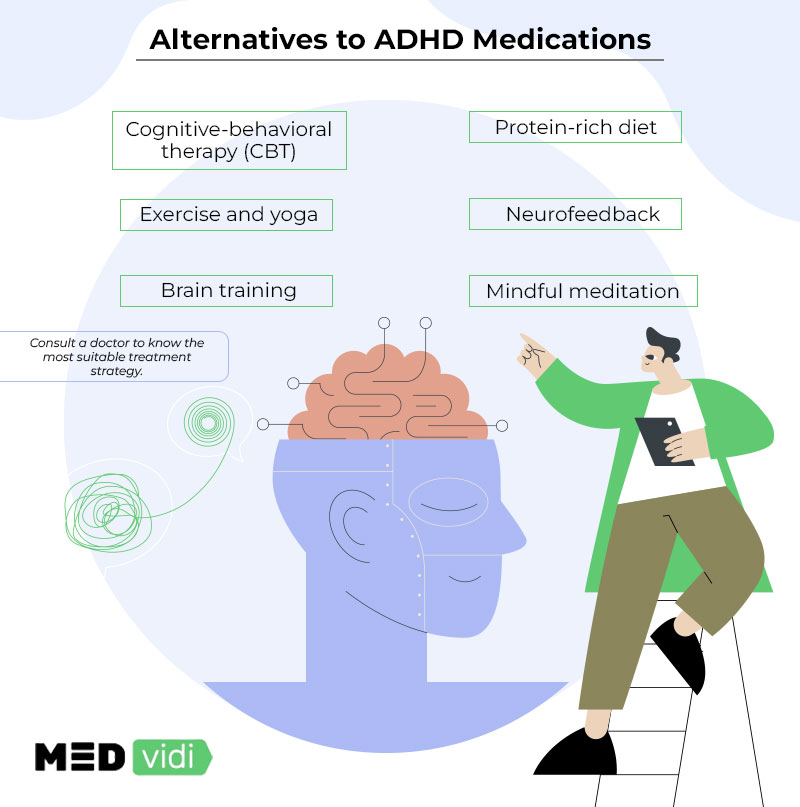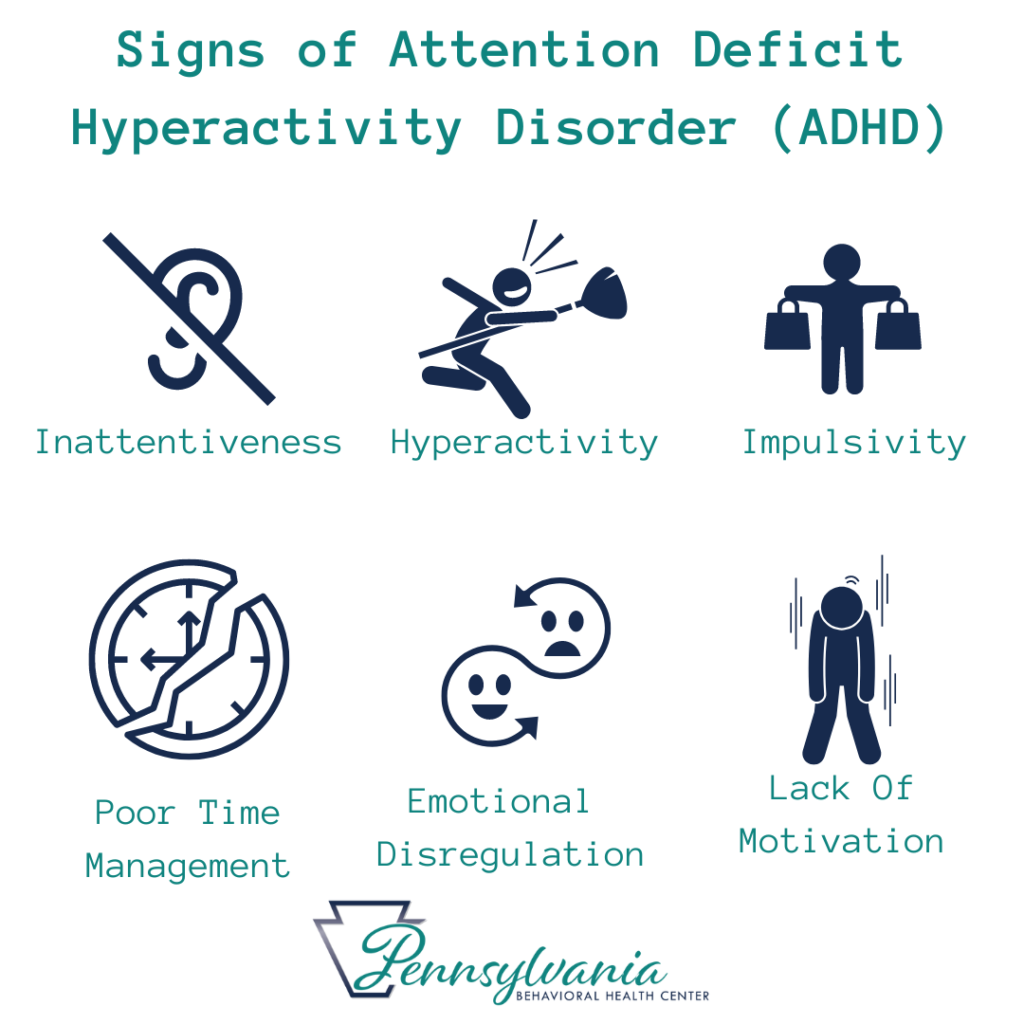Medication Management Programs for Safe Mental Health Treatments
Medication Management Programs for Safe Mental Health Treatments
Blog Article
Checking Out Reliable ADHD Treatment Choices for All Ages
The complexities of Focus Deficiency Hyperactivity Problem (ADHD) existing one-of-a-kind challenges across different age groups, necessitating a comprehensive expedition of effective treatment choices. A combination of behavior treatments, pharmacological interventions, and way of life modifications has revealed assurance in resolving the diverse requirements of people with ADHD.
Comprehending ADHD and Its Impact
Attention-Deficit/Hyperactivity Condition (ADHD) is a neurodevelopmental problem identified by persistent patterns of inattention, hyperactivity, and impulsivity that can significantly impact numerous elements of an individual's life. It normally manifests in youth, although signs and symptoms can linger right into adulthood. The core symptoms of ADHD can disrupt academic performance, prevent social interactions, and complicate work endeavors.
Individuals with ADHD usually battle with keeping concentrate on tasks, arranging activities, and adhering to with on instructions, which can result in scholastic underachievement (Depression Treatment). In social contexts, impulsivity might cause troubles in creating and sustaining relationships, as individuals may disrupt discussions or make hasty choices without considering consequences
The variability in sign discussion indicates that ADHD can influence individuals differently, necessitating an individualized approach to monitoring. Comprehensive recognition of ADHD's nature and effects lays the foundation for exploring appropriate therapy options tailored to each person's needs.
Behavioral Therapies for ADHD
Various behavior modifications have been developed to effectively deal with the challenges linked with ADHD, concentrating on modifying particular habits and promoting necessary skills. Amongst the most recognized methods are cognitive-behavioral treatment (CBT), parent training, and social skills training.
CBT helps people recognize and change negative idea patterns and habits, promoting an extra positive overview and enhanced self-regulation. This therapy typically consists of functional approaches for taking care of impulsivity and boosting organization. Moms and dad training programs encourage caregivers by outfitting them with methods to enhance favorable habits and established regular boundaries, which can be specifically valuable for kids with ADHD.
Social abilities training is one more vital part, training people with ADHD just how to connect efficiently with peers - Depression Treatment. This strategy usually includes role-playing and comments to boost interaction, collaboration, and conflict resolution abilities
Integrating these behavioral therapies into a thorough treatment plan can considerably improve working and top quality of life for individuals with ADHD. Ultimately, the efficiency of these therapies depends upon tailored strategies that think about the unique demands of each individual, thus promoting durability and adaptability in day-to-day live.
Medicine Options Available
For numerous people with ADHD, medicine can play a considerable duty in taking care of symptoms and boosting general performance. Both key categories of drugs recommended for ADHD are stimulants and non-stimulants.
Stimulants, such as methylphenidate and amphetamine-based medicines, are the most typically used treatments. These drugs function by enhancing the basics levels of natural chemicals, particularly dopamine and norepinephrine, in the mind, which helps boost attention and lower impulsivity and hyperactivity. They typically generate quick outcomes, making them a recommended alternative for several patients.

It is important for medical care providers to perform a detailed evaluation to figure out one of the most suitable medicine based upon private requirements, medical history, and prospective negative effects. Normal follow-up and surveillance are also crucial to guarantee the efficiency of the selected therapy and to make any type of needed changes.
Way Of Living Changes to Think About
Handling ADHD successfully expands beyond medication, as way of living modifications can considerably improve total well-being and signs and symptom control. Incorporating organized regimens is critical; constant routines aid people with ADHD manage their time effectively and minimize sensations of bewilder.
Normal exercise is one more vital element. Workout not only helps to improve focus yet additionally boosts mood and lowers stress and anxiety levels. Tasks such as yoga exercise or group sports can be specifically advantageous, advertising both physical health and fitness and social communication.
Nourishment likewise plays a critical duty. Depression Treatment. A well balanced diet plan rich in omega-3 fatty acids, whole grains, and lean healthy proteins can contribute to improved emphasis and cognitive function. Limiting sugar and refined foods is a good idea, as these can exacerbate hyperactivity and impulsivity
Rest health is essential for taking care of ADHD signs and symptoms. Developing a normal sleep routine and creating a restful setting can boost rest quality, resulting in far better focus and emotional guideline.
Alternate and Holistic Techniques
Alternate and all natural techniques depression and insomnia to ADHD therapy use a diverse variety of choices that complement typical techniques. These approaches typically concentrate on way of life modifications, dietary treatments, and restorative techniques that aim to improve total well-being while addressing ADHD signs.

Mindfulness and behavioral treatments are also gaining traction as all natural interventions. Practices such as yoga exercise, reflection, and cognitive-behavioral therapy can cultivate self-regulation and boost interest. These methods support emotional strength, which is particularly useful for people with ADHD.
Organic supplements, such as ginkgo biloba and ginseng, are often checked out; nevertheless, it is vital to seek advice from healthcare specialists before integrating these right into therapy strategies. While option and holistic strategies can give valuable support, they ought to preferably be used along with evidence-based therapies to attain optimal results for taking care of ADHD across any ages.
Conclusion
In summary, reliable ADHD therapy requires a detailed method that includes behavior treatments, medicine, lifestyle modifications, and holistic methods. This complex strategy highlights the significance of customized care in resolving the diverse demands of individuals with ADHD throughout all age teams.
Report this page